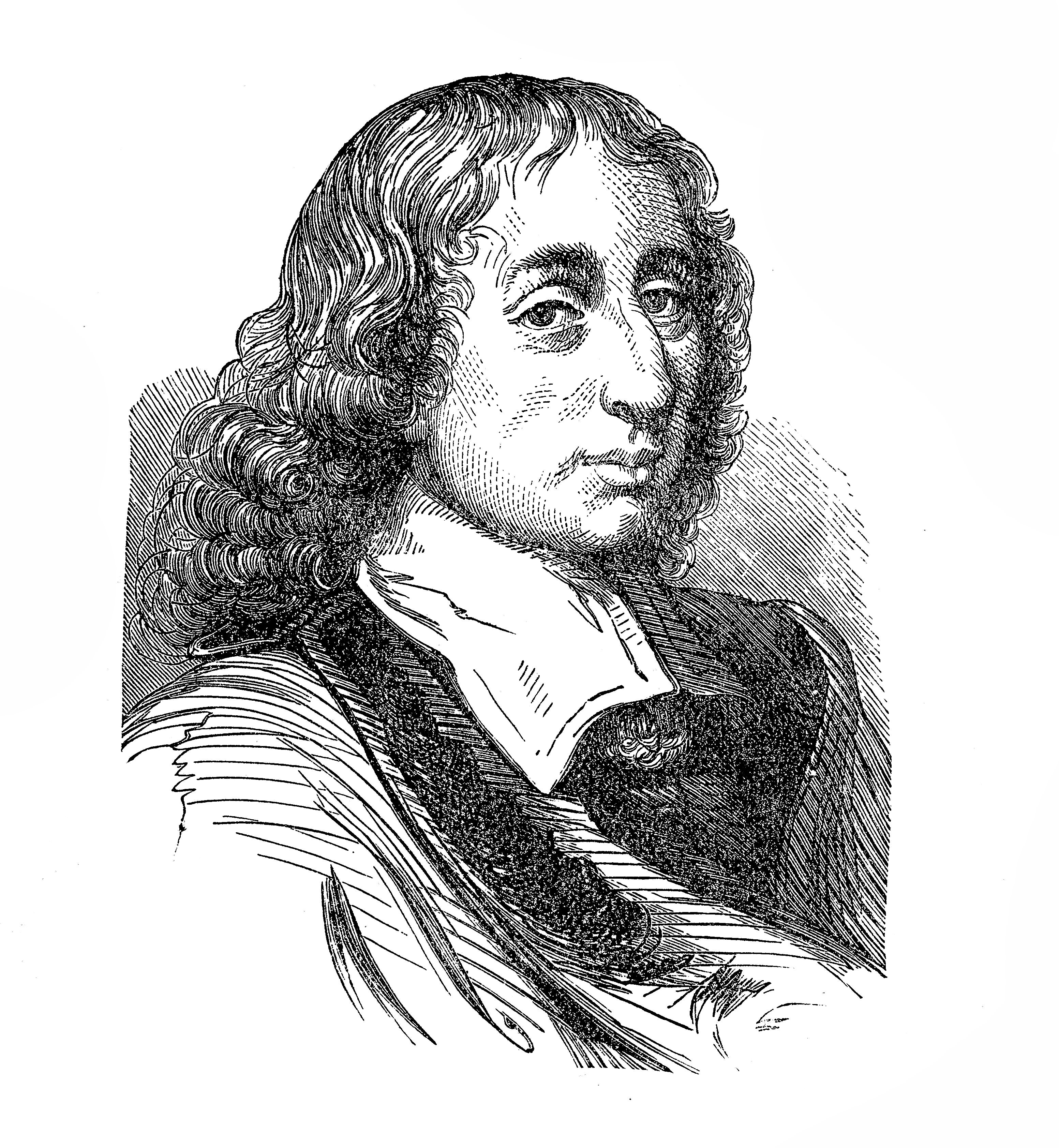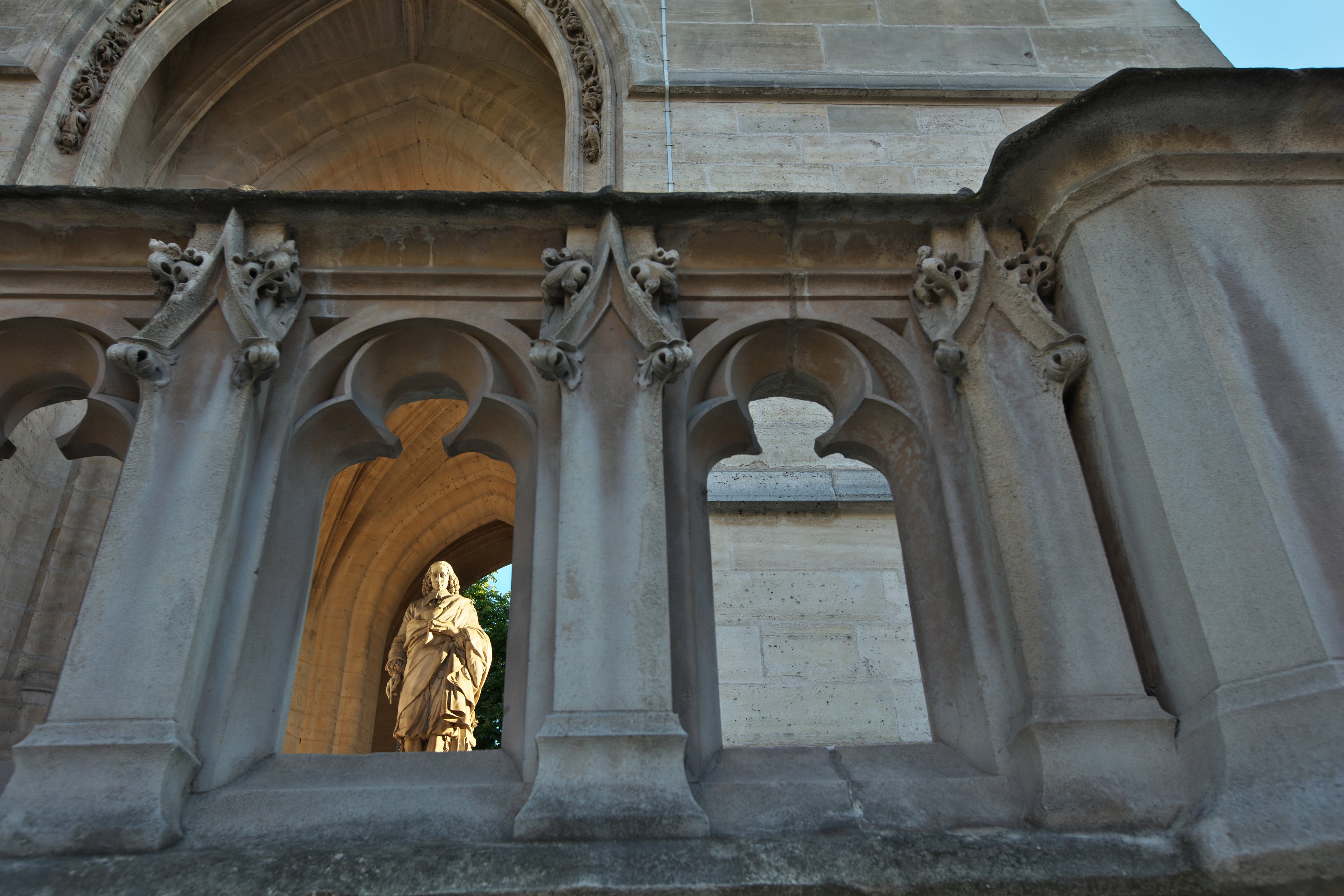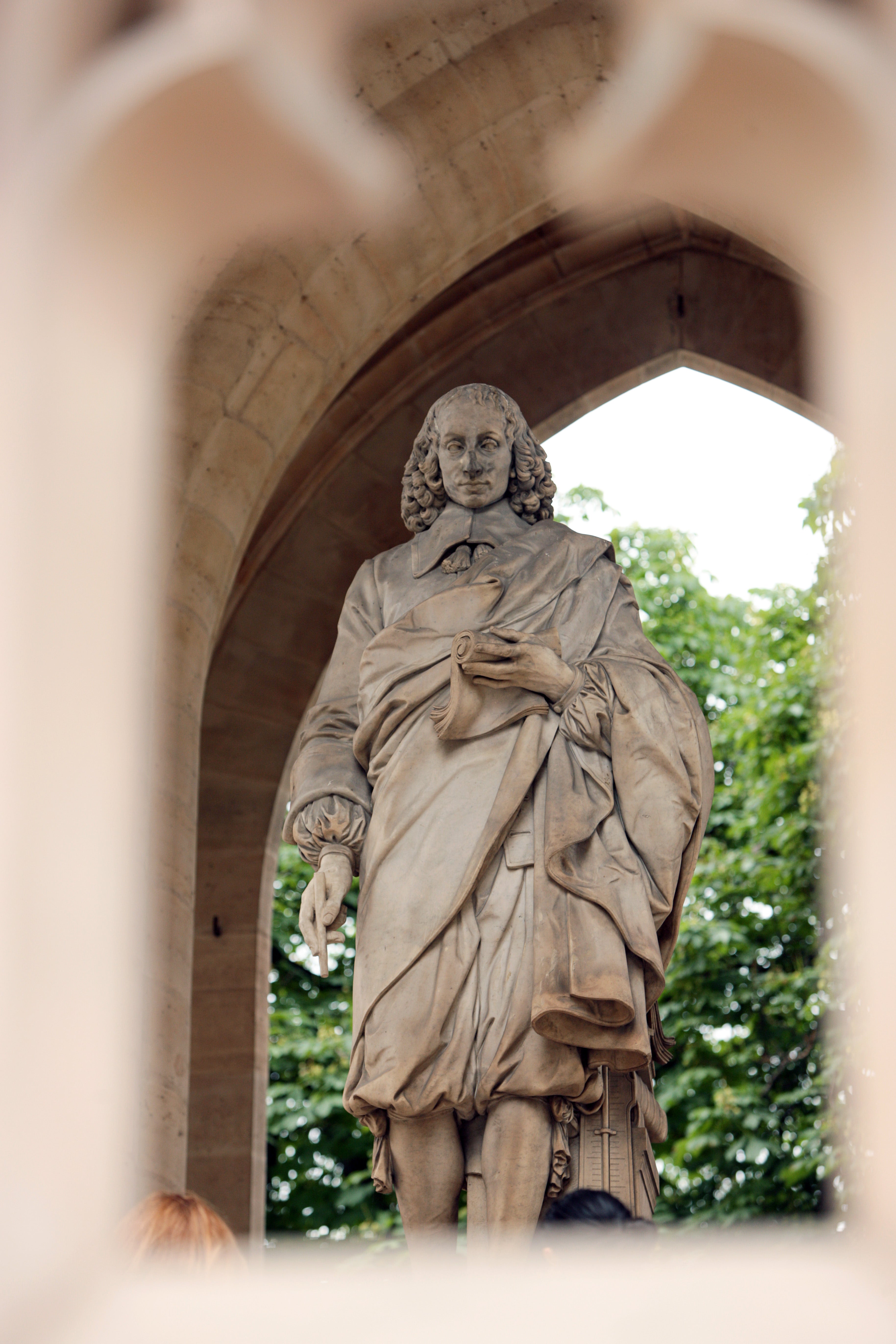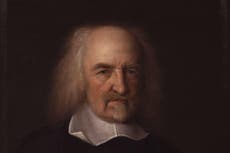Blaise Pascal: One of the 17th century’s best intellects
Pascal was a man of so many talents that it was reported that even René Descartes was envious of the Frenchman

Blaise Pascal (1623–62) was a man of many talents. In his short life, he made significant contributions to the fields of philosophy, mathematics, physics and theology.
When not working on the mysteries of the universe, Pascal also found time to invent a calculating machine and to establish an omnibus system in Paris (the profits of which went to the poor), and this from a man who died before his 40th birthday. He is generally considered to have been one of the 17th-century’s best intellects; indeed, many commentators report that even the great philosopher René Descartes was envious of Pascal’s prodigious abilities.
It was clear from a very early age that Pascal was going to be something special. His father Étienne, a trained lawyer and brilliant mathematician, with connections to some of the leading scientific thinkers of the age via his association with the Mersenne circle of natural philosophers, took on the task of his son’s education. Blaise was extraordinarily precocious. His sister reports, for example, that by the age of 12 he had managed to work out Pythagoras’s Theorem on his own. His father recognised his talent for mathematics and began to teach him. It was not long before Pascal was participating on his own terms in the discussions of the Mersenne group.
His calculating machine was a product of these early years. His father was working as Rouen’s chief tax officer, a job which involved many routine, but time-consuming calculations. Pascal’s machine, with its ability to manipulate numbers of up to six figures, was designed to remove some of the drudgery from the work. Although it proved to be too expensive to make to be a commercial success, it worked correctly, and it is generally considered to be the world’s first geared computer.
Thoughts on vacuum
Also at this time, Pascal was engaged in the scientific work which was to make his international reputation. He had become interested in a set of experiments by the Italian physicist Evangelista Torricelli, which showed that when a tube of mercury was placed upside-down in a basin of mercury, a gap appeared at the top of the tube. The issue under debate had to do with what was in the gap. Traditional, scholastic thinkers, remaining true to the Aristotelian adage that nature abhors a vacuum, held that the tube contained some kind of subtle, invisible substance. Pascal’s view was that such matters could not be decided by an appeal to authority, and, with Pierre Petit, he embarked on a series of experiments to determine the truth of the matter.
Pascal employed a striking image to press this point home. He likened the learning of all men – in other words, scientific progress – to the learning of one immortal man over time
In 1647, after some four years of experimentation, he published his Experiments on a Vacuum. In it, though he shied away from claiming definitively that the tube contained a vacuum, he outlined in some detail why the idea that the gap comprised a subtle substance was flawed. This provoked a response from Père Noël, the rector of the Jesuit Collège de Clermont in Paris, who remained committed to the traditional Aristotelian view. In his reply, Pascal set down what he considered to be the principles of scientific methodology, and in a move which in a way anticipated 20th-century logical positivism, accused Noël of the invention, ex nihilo, of a substance which was, in principle, undetectable:
If one asks them, or you, to make us see this matter, they reply that it is not visible. If one asks that it make some sound, they say that it cannot be heard, and likewise for all the other senses. Thus they think that they have achieved much by making others incapable of showing that subtle matter does not exist, thereby depriving themselves of any chance of showing that it does exist. But we find more reason to deny its existence because it cannot be proved, than to believe in it for the sole reason that one cannot prove that it does not exist.
Pascal further developed his thoughts on scientific methodology in his Preface to a treatise on a vacuum, which he wrote just a few years after his exchange of letters with Father Noël. In this, as well as reiterating his belief that appeals to authoritative texts and the like have no place in scientific reasoning, he outlined his view of science as a progressive enterprise, with new generations of scientists building on the knowledge handed down to them by their predecessors:
The secrets of nature are concealed; although she is continually working, we do not always discover her effects: time reveals them from age to age, and although always alike in herself she is not always alike known. The experiments that give us the knowledge of these secrets are multiplied continually … It is in this manner that we may at the present day adopt different sentiments and new opinions, without despising the ancients and without ingratitude, since the first knowledge which they have given us has served as a stepping-stone to our own …

Pascal employed a striking image to press this point home. He likened the learning of all men – in other words, scientific progress – to the learning of one immortal man over time. Learning is cumulative, and, in scientific terms, the ancients, our ancestors, were in their infancy. Moreover, it is fair to suppose that if the scientists of the past were privy to what we now know, they too would reassess commitments which were then held to be inviolate.
However, Pascal did not entirely rule out a role for authority in the quest for knowledge, for when it comes to theology, different rules come into play. In fact, according to Pascal, authority is the only measure of truth in theological matters; when we want to know about a realm which is beyond the reach of reason, then we have little choice but to rely on the authority of sacred texts.
Pascal’s conversion
This might seem a rather strange idea to be held by someone so committed to reason and evidence in the pursuit of scientific knowledge. However, Pascal, certainly in the latter part of his life, was a deeply religious man. Indeed, on the night of 23 November 1654, at the age of 31, he underwent what might be called a conversion experience; it was sufficiently profound that he recorded it on a piece of parchment, which he then had sewn into his jacket, and which he carried with him for the rest of his life.
After this experience, Pascal turned increasingly to writing on religious matters. His Lettres Provinciales, a series of 18 letters, published in 1656–7, was a scathing attack on the views of the Jesuits. In essence, he accused them of expediency in their theological and moral outlook; they were, he claimed, willing to sacrifice doctrinal accuracy for the purposes of political gain. The context of this dispute was a conflict between Jansenism, an approach to Christianity rooted in a strict interpretation of the ideas of Augustine, and the wider Catholic Church. By the time of the Lettres, Pascal was a committed Jansenist; and his intervention in the dispute was an attempt to shore up support for Jansenism in the face of papal censure.

Pascal’s wider theological views showed very clearly the influence of Augustine. He was committed to the Augustinian idea that the fall of man had left human beings spiritually corrupt to the core. It is only by the grace of God that people – and by no means all people – can be redeemed; in his view, God’s grace is such that those people he had blessed will always choose to follow his path. However, as a good Augustinian, Pascal was also committed to the idea of predestination, that is, the idea that salvation is preordained. Therefore, there is nothing specifically that the individual can do to attain salvation; either God will make his presence felt in the heart of a particular individual, or he won’t.
Pascal’s wager
This belief makes it slightly paradoxical that Pascal spent the final years of his life putting together the beginnings of an apologia for Christianity. Although it was never fully completed, the extant material was pieced together as Pensées. It is in this work that one finds Pascal’s famous wager. The argument is as follows: either God exists or he does not. We have to choose one way or the other on this issue; it is an unavoidable existential dilemma. If God does not exist, then we lose very little by believing that he does exist. If he does exist, then we stand to gain an awful lot by believing that he does, and to lose an awful lot by thinking that he doesn’t. Therefore, it is sensible to wager that he does exist, and to behave appropriately. As Pascal put it: “I should be much more afraid of being mistaken and then finding out that Christianity is true than of being mistaken in believing it to be true.”
The wager, then, is not an argument for the existence of God; Pascal was aware that he could not convince unbelievers of God’s existence by rational argument. It is, rather, an argument for the rationality of belief in God. It was aimed not so much at people who were convinced that God did not exist, but rather at the waverers, people who were sceptical but interested. It does, however, sit uneasily with his Augustinian view of predestination. Pascal anticipated the criticism that the idea of trying to persuade people of the efficacy of religious belief is strange if it is true their belief is not constitutive of salvation. His response was that God might choose to do his work through other people, so it was his duty to attempt to bring people to faith. However, while this response might explain Pascal’s motives, it isn’t clear that Pascal’s wager can function as a motive to action. If a person’s future is predestined, why do anything? Why not just sit back and wait for God to act?

Despite this difficulty, the wager has remained an influential argument. It is seen as an early example of decision theory. Indeed, it is fair to say that among the educated public it is what Pascal is best known for. However, in a sense this is unfortunate; Pascal’s reach was broad, and in 21st-century terms his scientific and mathematical work is perhaps more impressive than his religious apologetics.
Major works
Experiments on a Vacuum (1647)
Based on four years experimental research, this work argues against the traditional view that “nature abhors a vacuum”.
Provincial Letters (1657)
A series of 18 letters, which amount to a scathing attack on the views of the Jesuits. In essence, they are accused of expediency in their theological and moral outlook, willing to sacrifice doctrinal accuracy for the purposes of political gain.
Thoughts (or Pensées) (1670)
An apologia for Christianity. Unfinished at Pascal’s death, this work comprises a series of short essays and aphorisms. It is best known for featuring Pascal’s famous wager (”Pascal’s Wager”), an argument for the rationality of a belief in God.
Join our commenting forum
Join thought-provoking conversations, follow other Independent readers and see their replies
Comments


Bookmark popover
Removed from bookmarks